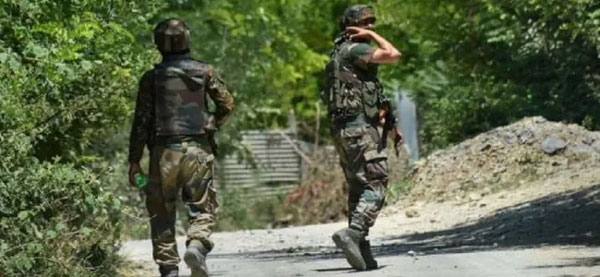Daijiworld Media Network - New Delhi
New Delhi, Nov 5: Pakistan’s Inter-Services Intelligence (ISI) and the Pakistan Army are attempting to use their renewed warmth with the United States to draw dormant terror networks back into action, Indian intelligence sources have revealed.
After the massive setback of Operation Sindoor, groups like Jaish-e-Mohammad (JeM) and Lashkar-e-Taiba (LeT) had gone silent. The operation, which decimated their headquarters and training facilities, left these outfits leaderless and disoriented. Key figures such as Maulana Masood Azhar and Hafiz Saeed had been in hiding, fearing targeted Indian strikes or retribution from rival factions.

Disillusionment within these terror circles was palpable. Their leadership blamed both the ISI and the Pakistani Army for failing to protect their networks, infrastructure, and families. Operation Sindoor’s precision strikes not only shattered their operational capabilities but also exposed the vulnerability of Pakistan’s military establishment, which was caught off guard.
Now, with ties between Washington and Islamabad improving, the ISI is reportedly in “damage control mode.” Intelligence inputs suggest that the agency believes visible leadership is essential to reignite the morale of terror cadres. For months, the ISI circulated old videos of Azhar and Saeed to keep the illusion of activity alive, but the rank and file soon grew skeptical.
In recent weeks, both Azhar and Saeed were persuaded to resume limited public engagement. Sources indicate that meetings were held under ISI protection in Lahore, where the two were assured that strong US–Pakistan relations would deter any Indian military action. The ISI allegedly played the “American card,” claiming that Washington’s involvement would constrain India’s response in the event of renewed hostilities.
While both leaders tentatively agreed, only Masood Azhar has surfaced publicly so far. JeM’s propaganda channels have started circulating his new messages, which call for the revival of militancy in Jammu and Kashmir. The group is also reportedly reactivating its women’s wing, to be headed by Azhar’s sister, Sadiya Azhar.
However, Indian intelligence officials have dismissed ISI’s assurances to the terror chiefs as “empty promises.” A senior official said, “India will not hesitate to respond decisively to any act of terror, regardless of external support Pakistan may claim to have.”
Meanwhile, Indian security agencies remain on heightened alert. Surveillance along the Line of Control (LoC) has been intensified to counter potential infiltration attempts. Over 80 militants are reportedly stationed at launch pads across Pakistan-occupied Kashmir (PoK), awaiting instructions. Multiple infiltration bids in recent months have been thwarted by vigilant Indian forces.
Officials emphasize that India’s security posture will remain uncompromising, especially with the possibility of terror leaders re-emerging to rally their cadres. The revival of Azhar and Saeed’s visibility, they warn, could serve as a dangerous morale booster for militants looking to infiltrate Indian territory.